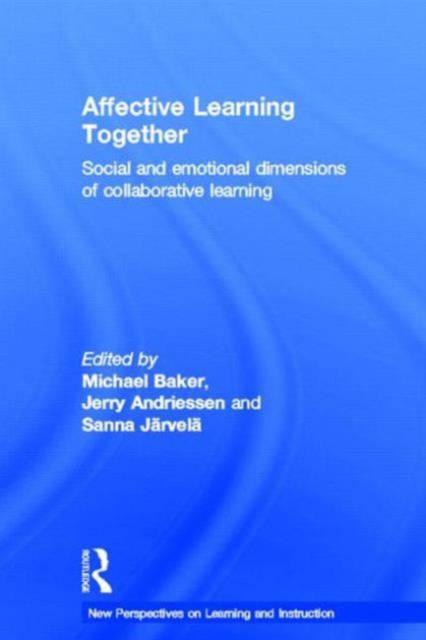
- Retrait gratuit dans votre magasin Club
- 7.000.000 titres dans notre catalogue
- Payer en toute sécurité
- Toujours un magasin près de chez vous
- Retrait gratuit dans votre magasin Club
- 7.000.0000 titres dans notre catalogue
- Payer en toute sécurité
- Toujours un magasin près de chez vous
Affective Learning Together
Social and Emotional Dimensions of Collaborative Learning
Description
In the twenty-first century, being able to collaborate effectively is important at all ages, in everyday life, education and work, within and across diverse cultural settings. People are increasingly linked by networks that are not only means for working and learning together, but are also ways of maintaining social and emotional support. Collaborating with others requires not only elaborating new ideas together, but also being able to manage interpersonal relations. In order to design and facilitate effective collaborative situations, the challenge is therefore to understand the interrelations between social, affective and cognitive dimensions of interactions in groups.
Affective Learning Together contains in-depth theoretical reviews and case studies of group learning in a variety of educational situations and taught disciplines, from small groups working in the secondary school classroom, to teams of medical students and more informal working groups at university level. Contributors provide detailed analyses of the dynamics of interpersonal relations and affects, in relation with processes of meaning and knowledge elaboration, including discussion of:
- the variety of social learning situations and experiences;
- social identities in group learning;
- emotion, motivation and knowledge elaboration;
- conflict, arguments and interpersonal tensions in group learning.
Bringing together a broad range of contributions from internationally recognised researchers who are seeking to broaden, deepen and integrate the field of research on collaborative learning, this book is essential reading for all serious students of contemporary educational research and practice.
Spécifications
Parties prenantes
- Editeur:
Contenu
- Nombre de pages :
- 312
- Langue:
- Anglais
- Collection :
Caractéristiques
- EAN:
- 9780415696876
- Date de parution :
- 28-01-13
- Format:
- Livre relié
- Format numérique:
- Genaaid
- Dimensions :
- 156 mm x 234 mm
- Poids :
- 616 g

Les avis
Nous publions uniquement les avis qui respectent les conditions requises. Consultez nos conditions pour les avis.





